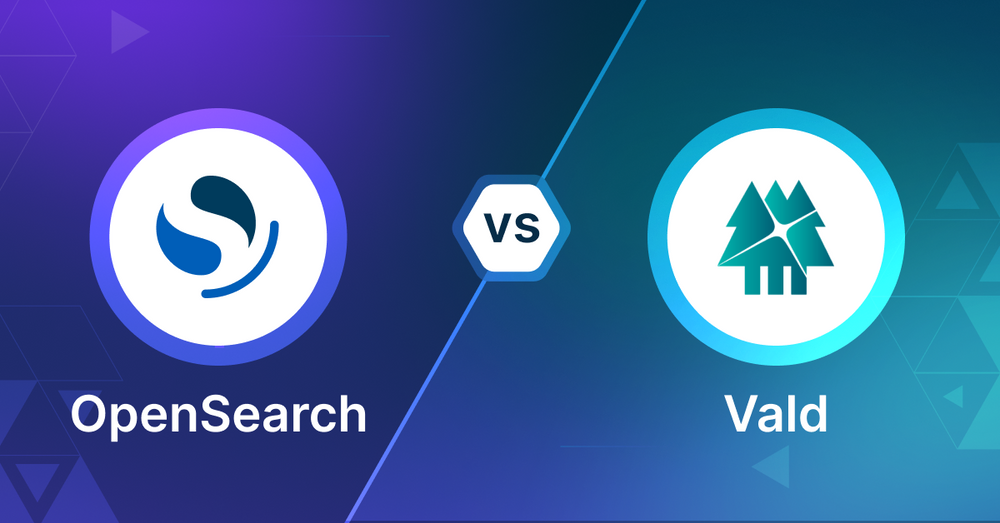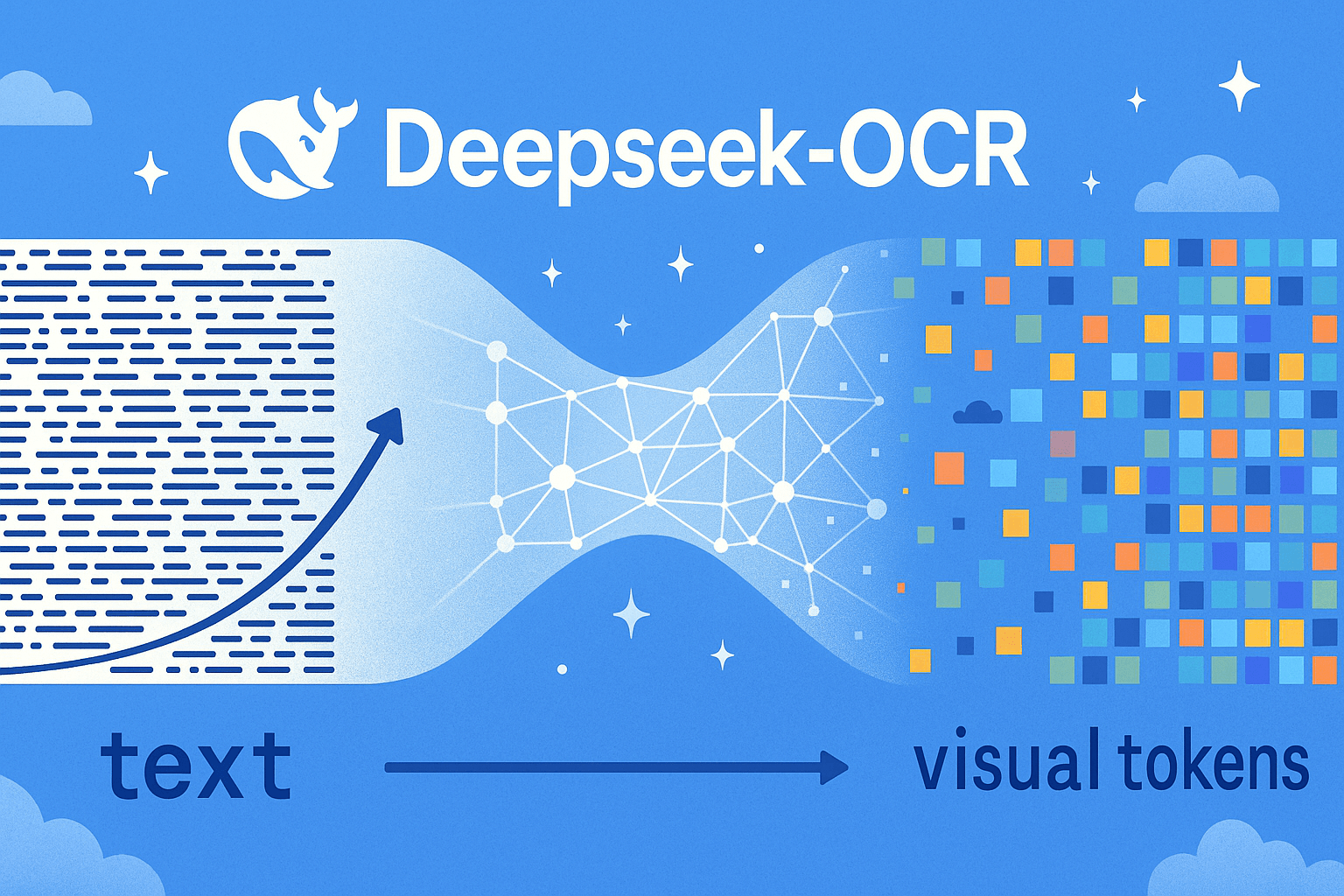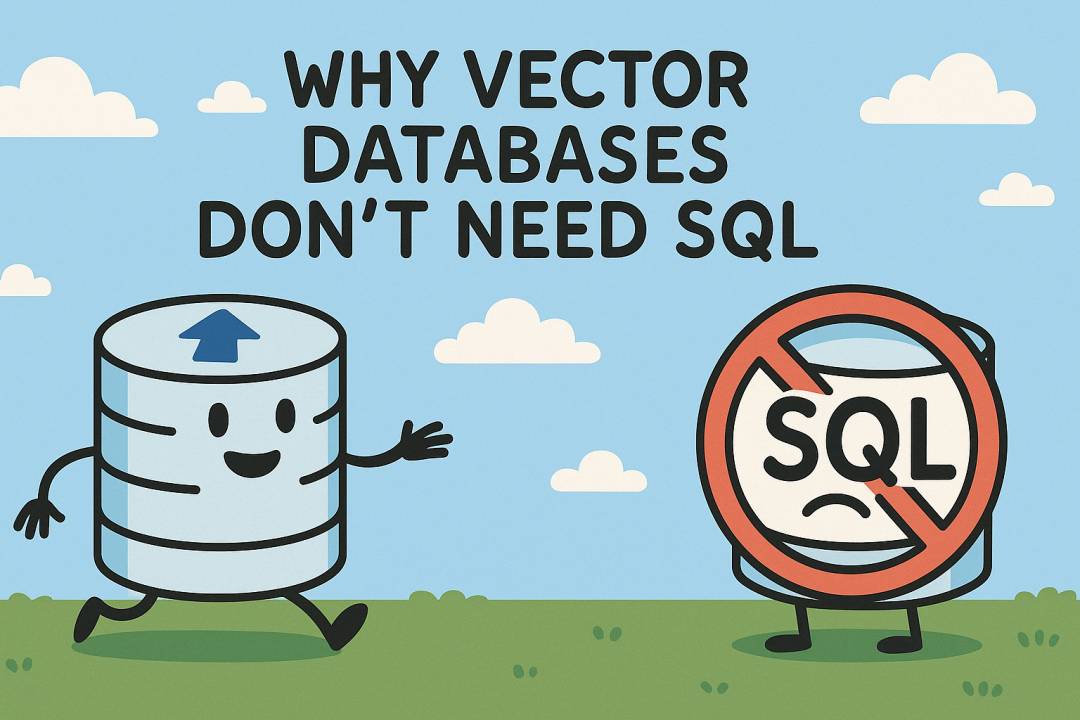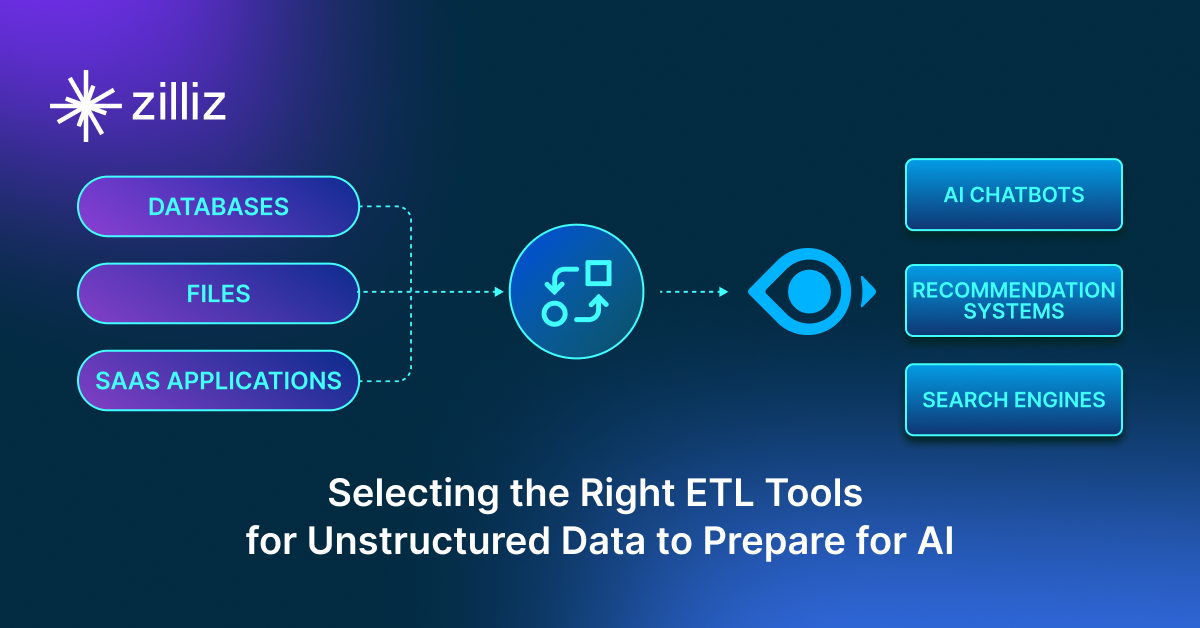OpenSearch vs Vald: Selecting the Right Database for GenAI Applications

As AI-driven applications evolve, the importance of vector search capabilities in supporting these advancements cannot be overstated. This blog post will discuss two prominent databases with vector search capabilities: OpenSearch and Vald. Each provides robust capabilities for handling vector search, an essential feature for applications such as recommendation engines, image retrieval, and semantic search. Our goal is to provide developers and engineers with a clear comparison, aiding in the decision of which database best aligns with their specific requirements.
What is a Vector Database?
Before we compare OpenSearch and Vald, let's first explore the concept of vector databases.
A vector database is specifically designed to store and query high-dimensional vectors, which are numerical representations of unstructured data. These vectors encode complex information, such as the semantic meaning of text, the visual features of images, or product attributes. By enabling efficient similarity searches, vector databases play a pivotal role in AI applications, allowing for more advanced data analysis and retrieval.
Common use cases for vector databases include e-commerce product recommendations, content discovery platforms, anomaly detection in cybersecurity, medical image analysis, and natural language processing (NLP) tasks. They also play a crucial role in Retrieval Augmented Generation (RAG), a technique that enhances the performance of large language models (LLMs) by providing external knowledge to reduce issues like AI hallucinations.
There are many types of vector databases available in the market, including:
- Purpose-built vector databases such as Milvus, Zilliz Cloud (fully managed Milvus)
- Vector search libraries such as Faiss and Annoy.
- Lightweight vector databases such as Chroma and Milvus Lite.
- Traditional databases with vector search add-ons capable of performing small-scale vector searches.
OpenSearch is an open source search and analytics suite with vector search as an add-on; Vald is a dense vector search engine.
What is OpenSearch? An Overview
OpenSearch is a robust, open-source search and analytics suite that manages a diverse array of data types, from structured, semi-structured, to unstructured data. Launched in 2021 as a community-driven fork from Elasticsearch and Kibana, this OpenSearch suite includes the OpenSearch data store and search engine, OpenSearch Dashboards for advanced data visualization, and Data Prepper for efficient server-side data collection.
Built on the solid foundation of Apache Lucene, OpenSearch enables highly scalable and efficient full-text searches (keyword search), making it ideal for handling large datasets. With its latest releases, OpenSearch has significantly expanded its search capabilities to include vector search through additional plugins, which is essential for building AI-driven applications. OpenSearch now supports an array of machine learning-powered search methods, including traditional lexical searches, k-nearest neighbors (k-NN), semantic search, multimodal search, neural sparse search, and hybrid search models. These enhancements integrate neural models directly into the search framework, allowing for on-the-fly embedding generation and search at the point of data ingestion. This integration not only streamlines processes but also markedly improves search relevance and efficiency.
Recent updates have further advanced OpenSearch's functionality, introducing features such as disk-optimized vector search, binary quantization, and byte vector encoding in k-NN searches. These additions, along with improvements in machine learning task processing and search query performance, reaffirm OpenSearch as a cutting-edge tool for developers and enterprises aiming to fully leverage their data. Supported by a dynamic and collaborative community, OpenSearch continues to evolve, offering a comprehensive, scalable, and adaptable search and analytics platform that stands out as a top choice for developers needing advanced search capabilities in their applications.
What is Vald? An Overview
Vald is a powerful tool for searching through huge amounts of vector data really fast. It's built to handle billions of vectors and can easily grow as your needs get bigger. The cool thing about Vald is that it uses a super quick algorithm called NGT to find similar vectors.
One of Vald's best features is how it handles indexing. Usually, when you're building an index, everything has to stop. But Vald is smart - it spreads the index across different machines, so searches can keep happening even while the index is being updated. Plus, Vald automatically backs up your index data, so you don't have to worry about losing everything if something goes wrong.
Vald is great at fitting into different setups. You can customize how data goes in and out, making it work well with gRPC. It's also built to run smoothly in the cloud, so you can easily add more computing power or memory when you need it. Vald spreads your data across multiple machines, which helps it handle huge amounts of information.
Another neat trick Vald has is index replication. It stores copies of each index on different machines. This means if one machine has a problem, your searches can still work fine. Vald automatically balances these copies, so you don't have to worry about it. All of this makes Vald a solid choice for developers who need to search through tons of vector data quickly and reliably.
Comparing OpenSearch and Vald: Key Differences for GenAI
Search Methodology
OpenSearch continues to evolve its robust search capabilities built on Apache Lucene. It now incorporates advanced vector search functionalities alongside traditional text-based searches, including machine learning-powered methods like k-NN, semantic, and multimodal searches. These enhancements are designed to improve the relevance and efficiency of searches by integrating neural models directly into the search framework, allowing for on-the-fly embedding generation.
Vald utilizes a high-performance algorithm, NGT (Neighborhood Graph and Tree for Indexing High-dimensional Data), for efficient similarity searches, making it exceptionally fast in handling vector data. Vald supports continuous indexing even while searches are ongoing, thanks to its distributed nature, which prevents downtime during index updates and enhances overall search efficiency.
Data Handling
OpenSearch is versatile in managing a wide range of data types, from structured and semi-structured to unstructured data. Its latest updates include disk-optimized vector search, binary quantization, and byte vector encoding, which significantly boost its capacity to handle large datasets effectively, making it ideal for complex AI-driven applications.
Vald is optimized for handling massive volumes of high-dimensional vector data, with a focus on scalability and real-time performance. It features automatic index replication and balancing across multiple machines, ensuring high availability and reliability for handling billions of vectors.
Scalability and Performance
OpenSearch is highly scalable, supporting large-scale deployments with ease. Its architecture allows it to distribute data and processing across multiple nodes efficiently, maintaining performance even under heavy loads.
Vald offers exceptional scalability features, designed to expand seamlessly as computational needs grow. Its cloud-native architecture and support for index replication across multiple nodes ensure that it can handle extensive vector datasets with minimal latency.
Flexibility and Customization
OpenSearch provides extensive customization options through plugins and a dynamic community-driven approach to feature development. This allows users to tailor the system to their specific requirements, enhancing both functionality and user experience.
Vald offers customizable data ingestion and egress, supporting various configurations and integrations, particularly with gRPC for efficient data transmission. Its flexible architecture is suitable for diverse operational setups, especially in cloud environments.
Integration and Ecosystem
OpenSearch boasts a comprehensive integration ecosystem that includes advanced data visualization tools and server-side data collection capabilities. Its community support and continuous updates make it a robust platform for developers.
Vald is built to integrate well in modern cloud infrastructures, offering features that complement its distributed nature. It is particularly adept at integrating within systems that require high-throughput and scalable vector data processing.
Ease of Use
OpenSearch has a moderate learning curve due to its extensive functionalities but is supported by an active community and comprehensive documentation, aiding in adoption and troubleshooting.
Vald is designed to be efficient and reliable in managing vector searches, though it requires some familiarity with its specific architecture and the underlying technologies like Kubernetes and NGT for optimal use.
Cost Considerations
OpenSearch, as an open-source solution, can be cost-effective, though larger deployments may incur significant costs related to scaling and management in cloud environments.
Vald's design reduces infrastructure and maintenance costs by efficiently managing resources and automating many aspects of data handling and index management, potentially offering cost savings in large-scale deployments.
Security Features
OpenSearch includes robust security measures such as encryption, role-based access control, and audit logging, ensuring data integrity and compliance with industry standards.
Vald likely incorporates fundamental security practices typical of cloud-native applications, though specific details such as encryption and access control weren't detailed.
When to choose OpenSearch and Vald for GenAI
Choosing between OpenSearch and Vald depends on the specific needs of your application, particularly in terms of the types of data you are managing and the search functionalities you require. Here's a straightforward guide on when to opt for each based on their strengths:
Choose OpenSearch for GenAI when:
- Advanced Text Search Capabilities Are Needed: Your application requires sophisticated full-text search functionalities, including semantic, keyword, and multimodal searches. OpenSearch is ideal for scenarios where complex text-based querying and analysis are critical.
- Real-Time Analytics and Visualization: You need a system that not only handles search but also provides powerful tools for real-time analytics and data visualization. OpenSearch Dashboards are particularly useful for monitoring, analyzing, and visually representing search data and metrics.
- Diverse Data Types: Your application deals with a combination of structured, semi-structured, and unstructured data. OpenSearch’s flexibility in handling various data formats makes it suitable for applications that require a broad data ingestion capability.
- Scalable, Full-Featured Platform: You're looking for a robust, scalable search and analytics platform with a strong community and ongoing development support. OpenSearch offers extensive plugin support and customization, making it adaptable to evolving requirements.
Choose Vald for GenAI when:
- High-Performance Vector Search: Your application specifically requires managing and searching through large volumes of high-dimensional vector data, such as images or complex patterns, where similarity search is more critical than keyword or full-text search.
- Scalability with Large Vector Datasets: You need a system that can scale efficiently as your dataset grows. Vald is designed to handle billions of vectors and provides automatic scalability, making it suitable for applications that anticipate rapid growth in data volume.
- Efficient Resource Management: Your setup demands a solution that minimizes resource usage while maintaining high throughput and low latency in vector search operations. Vald’s cloud-native design and efficient indexing mechanisms provide cost-effective scalability.
- Real-Time Indexing and Updates: Your application requires that the search index be updated in real-time without downtime. Vald supports continuous indexing even while handling search queries, which is crucial for dynamic datasets where new data is frequently added.
Using Open-source VectorDBBench to Evaluate and Compare Vector Databases on Your Own
VectorDBBench is an open-source benchmarking tool designed for users who require high-performance data storage and retrieval systems, particularly vector databases. This tool allows users to test and compare the performance of different vector database systems such as Milvus and Zilliz Cloud (the managed Milvus) using their own datasets, and determine the most suitable one for their use cases. Using VectorDBBench, users can make informed decisions based on the actual vector database performance rather than relying on marketing claims or anecdotal evidence.
VectorDBBench is written in Python and licensed under the MIT open-source license, meaning anyone can freely use, modify, and distribute it. The tool is actively maintained by a community of developers committed to improving its features and performance.
Download VectorDBBench from its GitHub repository to reproduce our benchmark results or obtain performance results on your own datasets.
Take a quick look at the performance of mainstream vector databases on the VectorDBBench Leaderboard.
Read the following blogs to learn more about vector database evaluation.
Further Resources about VectorDB, GenAI, and ML
- What is a Vector Database?
- What is OpenSearch? An Overview
- What is Vald? An Overview
- Comparing OpenSearch and Vald: Key Differences for GenAI
- When to choose OpenSearch and Vald for GenAI
- Using Open-source VectorDBBench to Evaluate and Compare Vector Databases on Your Own
- Further Resources about VectorDB, GenAI, and ML
Content
Start Free, Scale Easily
Try the fully-managed vector database built for your GenAI applications.
Try Zilliz Cloud for FreeKeep Reading

DeepSeek-OCR Explained: Optical Compression for Scalable Long-Context and RAG Systems
Discover how DeepSeek-OCR uses visual tokens and Contexts Optical Compression to boost long-context LLM efficiency and reshape RAG performance.

Why AI Databases Don't Need SQL
Whether you like it or not, here's the truth: SQL is destined for decline in the era of AI.

Selecting the Right ETL Tools for Unstructured Data to Prepare for AI
Learn the right ETL tools for unstructured data to power AI. Explore key challenges, tool comparisons, and integrations with Milvus for vector search.
The Definitive Guide to Choosing a Vector Database
Overwhelmed by all the options? Learn key features to look for & how to evaluate with your own data. Choose with confidence.